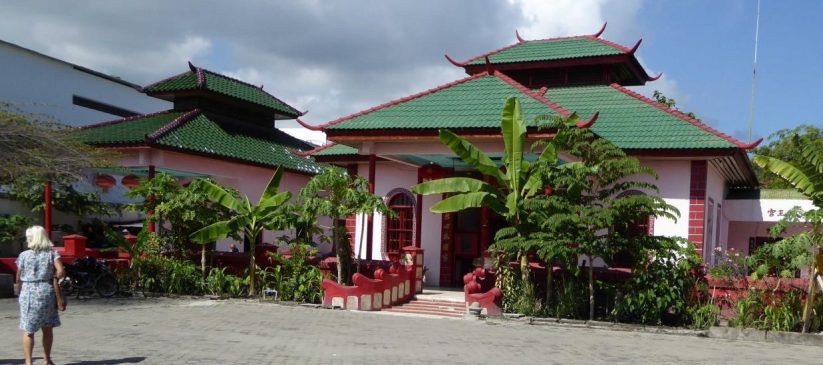Snapshots with Stories
32 – A Chinese Temple in Dili, East-Timor
East-Timorese and Chinese people have lived peacefully side by side in the former Portuguese colony. Indonesia invaded East-Timor in December 1975, after Portugal’s retreat from the island. At that moment about 20,000 Peranakan Chinese lived in Timor. Originally from the former Portuguese colony of Macau, among other places, many generations have lived there. Among the numerous victims at the hands of the Indonesian army, was a large number of Chinese Timorese. Many fled to Australia, Taiwan and Portugal. A UN referendum in 1999 put an end to the Indonesian occupation which had resulted in over a hundred thousand deaths. Since the independence, Dili, in particular, developed into a allluring city for Asian businessmen. Chinese Indonesians, as well as Chinese from the People’s Republic have established shops and companies in the East-Timor capital.
Travel journalists Willy van Rooyen and Willem van Gent visited a Chinese temple in East-Timor, in 2015. They say:
We have been to Dili, East-Timor’s capital, before, but have never visited the Guang Di temple, dedicated to Guang Gong. We did, once, visit the vast Chinese cemetery, beautifully located on one of the hills surrounding Dili, which has a great view of the city and the coastline.
It is very busy, when we walk into the temple in the heart of Dili one morning.

A Chinese temple attendant stands before the altar, where he is shaking a container full of wooden sticks, mumbling incomprehensibly. There is a waiting room full of East-Timorese, of non-Chinese origin, remarkably enough.
A young Timorese girl, accompanied by a young man, shyly whispers into the Chinese man’s ear. Would she be wishing for pregnancy? Other visitors pass on their wishes on a piece of paper, ranging from passing an exam, having a healthy baby, to more prosperity and whatever people would wish for more. “Everyone is welcome” says the Chinese man. “As you see, many non-Chinese East-Timorese come here too. They gladly pay the two dollars.”

On this marble slab is written: ‘Our ancestors left their hometown and sailed to East-Timor’.

An ancestral altar. On the second tablet, below left, is written: China, Fujian province.
Willy van Rooijen/Willem van Gent, August 2015
(This story was previously published in Latitudes, June 2015, ed.)



